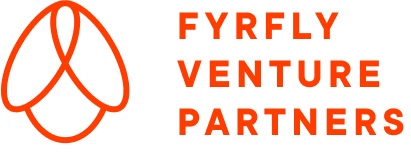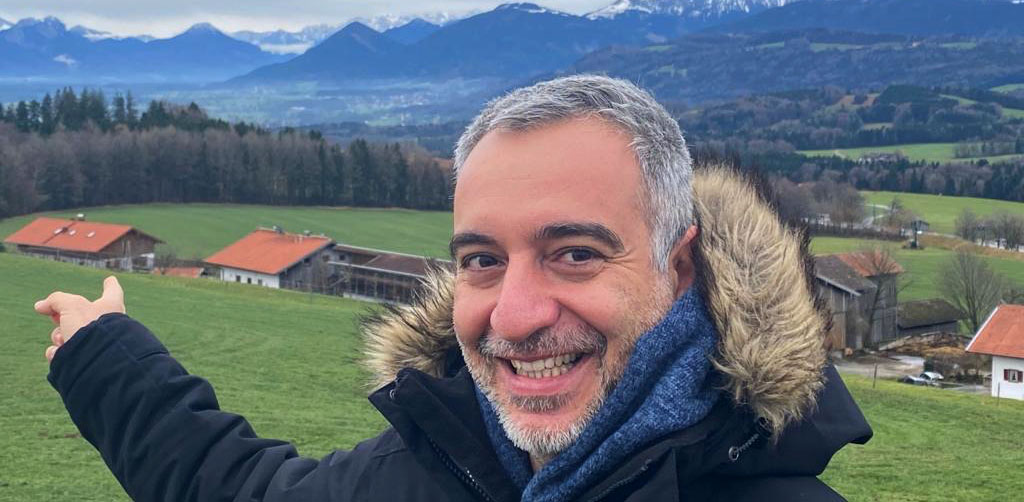Entrepreneurship
What is your founder story?
What led me to be an entrepreneur is a strong personal need for freedom and living the dream of having a positive impact on others.
Altoida, was inspired by my Grandmother, who suffered from Alzheimer’s, and always pushed me forward to enable people to easily assess their brain health and detect neurodegenerative symptoms like symptomatic Alzheimer’s Disease at a very early stage. So I took on the journey and studied the space deeply and became a researcher. After 12 years, I had a lot of evidence and data that made me think that we might be able to do much better in terms of AD (& broader brain health) diagnostics and potential therapeutics with the help of digital biomarkers. That was the key spark for Altoida, initially not really as a business, but as a project. We set out to solve a big problem and while on the journey discovered that this could also be a big business opportunity. Most importantly, it will have lasting impact on patient outcomes.
What is your greatest learning as a founder and entrepreneur so far?
How the small problems appear huge at first. However, with time, different viewpoints, and creativity, solutions can always be found.
Tell us about a turning point / challenge and how you proceeded.
As a founder you experience challenges and even turning points on a daily basis. Breathe, sleep on it, and always be open to change the approach or how you think about it. If I were to now pick out one turning point, it would probably be our go-to-market with our business team. For me, as a scientist, and for Altoida, which initially at its core was just a technical solution, this step was key.
From your experience as a founder, what matters most and why?
To be a founder, you have to be willing to take risks and to execute on your idea, so it’s important to have a deep passion for your startup and a mindset that welcomes calculated risk. In addition, having a certain safety net can’t hurt either. I would also add that a great, motivated team is also of course key. You can’t go all the way alone.
What advice would you give to a first-time founder?
First of all, and most importantly, never give up. Also, choose your team wisely, try your best and learn from your errors, and always take feedback from others in the same position.
Person
What keeps you awake at night?
Mosquitos and a snoring partner.
Tell us about one of the most defining moments in your life that shaped you.
Finishing a PhD and being exposed to the ‘real world’ for the first time, at an age where everyone else already has work experience was definitely a defining moment. Although I entered the practical world rather late, I immediately enjoyed the possibilities and freedom, and with my appetite for taking risks, this all culminated into starting a startup. Besides founding Altoida, of course having kids, they say…
As a founder, what is the #1 thing you have learned about leadership?
The importance of encouraging, inspiring and motivating employees to innovate and create change that will help grow and shape the future success of the company, through letting people grow and allow for freedom, appreciate their strengths and support them in their weaknesses to achieve the best results (also known as transformational leadership).
What is your advice on managing your startup and personal life at the same time?
Do something you love, so work will always be fun, and you’ll never get tired of it.
How do you measure success?
Happiness scale, personal and/or work goals achieved (yes/no), laughing at least once a day, having few regrets, being proud of what I’m doing every day, and of course the bank account.
What is your favorite book/podcast and why?
“The 5 languages of love” as a framework is adaptable to all kinds of human interactions and allows for an understanding of interpersonal relationships, motivations, frictions, and misunderstandings relevant for leadership, collaborations, friendships, etc. Also, Sebastião Salgado’s Gênesis is great.
If you weren’t a founder, what would you be doing?
Maybe an astronaut since space exploration has similar characteristics as founding a startup like taking risks. But most likely, I would be an AD researcher.
Fun
If you could travel back in time, who would you want to chat with and what would you ask?
Alois Alzheimer, to ask whether he thinks Alzheimer’s disease is caused by amyloid or whether it is more likely to be vascular factors, initially described in his pathological report but lost in translation over time. Also, my younger self, to ask if I have turned out the way I expected to become when I was a child.
What is your favorite job interview question?
If I’m being interviewed: “If you were to start your job here again, what would be the advice to yourself?”
If I’m interviewing: “When can you start?”
What should be invented even if not possible today?
- Coronavirus vaccine
- Teleportation
- Mini brains (brain organoids) with a vascular system for fast and reliable in-vitro drug testing without animal models
- A fairer justice system
- Sustainable everything
- Functioning healthcare system
- A formula to turn water into wine
- Hangover remedy
What store would you open on Mars?
Assuming water and oxygen are already there, probably a burger shop.
If you were an animal/city/location/etc. what would you (want to) be?
An Albatross. Free like a bird, moving comfortably in different dimensions, adapting quickly to different climates, endurance (crossing oceans), and not having a lot of natural enemies.
Extras
Favorite book as a child
Taratata (Greek book)
What would you be (not in technology) if you weren’t a founder
Guitar player
Favorite movie
Gattaca
Favorite cocktail
Americano!
Something really unique, funny, and/or something no one would know about you
Almost served at a US military base at Hawaii developing virtual reality applications for mental health, but had to first serve at the Greek military instead!

